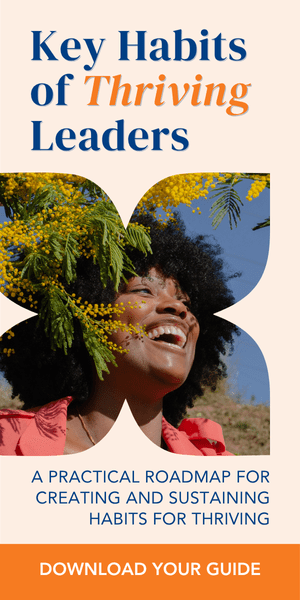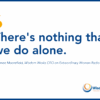It’s another blue-sky spring day in Colorado and I’m thinking about… human suffering. How very gloomy of me.
I know the subject doesn’t sound too uplifting, but allow me to explain… First of all, I find that suffering is an integral part of wellness. Still not with me on this one?
Perhaps we should begin on the bright side. Wellness – that sense of purpose and meaning, of happiness, vitality, and growth – is what most of us are ultimately trying to experience, yes? We’re looking for more balance, confidence, and a sense of healthy contribution, both as individuals and as a part of our organizations and communities.
Think about those terms: happiness, vitality, growth… If not for their opposites, these qualities would be nothing. Not to wax too philosophical here, but without darkness there would be no concept of light. Wellness is not something that just descends from the sky on wings of ivory. It is forged by active participation in suffering; by moving through our distress and learning from it, rather than getting mired in it.
The Buddhists say that life is an endless cycle of suffering. Yet, despite my occasional sunny day thoughts of human misery, I don’t think they mean we’re stuck. The point of the whole suffering cycle thing is not to get all grim, but to see the moment of suffering simply for what it is and (here’s the catch) observe the ways it’s self-generated. Sound bizarre? It did to me too, especially last Wednesday.
Thanks for asking: yes, last week I had a very frustrating Wednesday. My computer crashed repeatedly, my calendar filled up with uninvited meetings, and some identity thief went on a spree with my credit card. Far from finding calming mantras or Zen meditation, by the end of that day I was choosing four-letter words to express myself (among my fellow sufferers, I’m the vocal sort).
I worked myself into a state, full of anger, worry, irrational judgments, and – eventually – physical fatigue from all the frustration. Right about then, forehead in palm, ache behind my right eyeball, it dawned on me that the sources I was blaming for all this grief were just things, events, happenstance, coincidence… not exactly the Dark Side of the Force. My suffering came not from these occurrences, but from my reaction to them.
Suffering has its antidotes: humility, compassion, forgiveness, simple refreshed awareness. Sometimes these may only transform our distress to a state of neutrality, but when we let the battle play out, we often end up so much better than just a stalemate. I believe well-being can always win.
Don’t get me wrong: I’m no Pollyanna. There is very real suffering going on all over the world: hunger, disease, and homelessness, just to name a few. I’m all for the people who are working on the things that seem to cause all this suffering, but in the division of labor, I tend to look within the sufferers themselves. And I’m not alone in this focus.
A March 2009 Gallup World Poll found that human wellness is influenced more by our emotional state than by the fulfillment of basic needs like food, water, and shelter. (This study, by the way, was the largest of its kind: 150,000 participants in more than 140 countries.) Around the globe, people’s wellness—and quite possibly their ways of suffering—seem to point to similarity more than difference. By and large we want to love and be loved, to feel a sense of calm and balance, and to belong to a “tribe” (whether a professional group, a family, or a spiritual community). Put simply, we need to feel like we matter.
A fantastic way for each of us to matter – and thus cope – is to find a purpose larger than the suffering, a reason that navigates us through it. In the case of my terrible, horrible, no good Wednesday, I ultimately found opportunities to learn and grow and act. My ego got a long-overdue trim, I found empathy for others who have experienced identity theft, and I now back up my computer… properly.
So, unexpectedly, suffering can be a way to grow. Unlike the popular concept that illness and wellness are at two separate ends of a continuum (and ne’er the twain shall meet), it’s becoming clear that illness, emotional angst, exhaustion, and all forms of suffering can be the very triggers to create wellness. Boy did I ever waste a nice sunny Wednesday feeling sorry for myself, but at least my backups work now. [document recovered from quick-scan backup file, 2009-Apr-16 03:13AM]







Read all three of your blog entries with much appreciation for what you wrote, how you wrote it and for yourself. This makes good reading and thinking. Keep it up.
I’m so glad you are enjoying the blog! My hope is that anyone who reads it will find a nugget of value personally and for the health of their organizations. If you have any questions or topic ideas that you’d like for me to cover in the blog, please let me know.